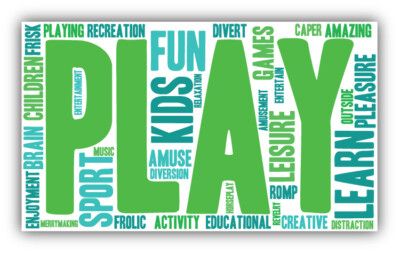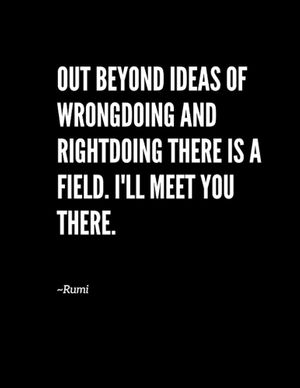In my practice, I offer seven pieces of advice to help couples who come to see me. I have used them so often that I thought I would put this list together and share them with you. These skills are game changers to learn and if done repeatedly will give you the relationship you want. Overriding pattern takes intention and repetition.

My Top Seven Relational Skills to Get Your Relationship Back on Track
I’m a licensed couples therapist in Amherst MA and I see the same seven issues come up over and over again. The same predictable pattern, the same fight.

1. Learn how to manage your differences. Healthy couples are able to be open to compromise and flexibility when navigating daily tasks. I’m a huge proponent of being present and curious when interacting on small tasks or bigger expectations. Often, in that open and receptive mindset a deeper need emerges.
It’s interesting. In the beginning of our relationships, we are drawn to what we find different: Introverts drawn to extroverts, planners to those spontaneous, logic to creative. But over time, we lose sight of those differences and try to make our partners more like ourselves.
Make an effort to return to what attracted you in the first place. Understanding and accepting our differences is a vital skill in the long health of your relationship! Next time, take a deep breath when you have a disagreement with your partner. Ask him why he finds it so important. I bet you’ll be surprised by what you hear when leading with a curiosity to understand more.
- 2. Let your partner speak and wait for your turn. Unfortunately, this is an underused skill. Does it feel like you are talking over each other and no one is being heard? As a couples therapist in Massachusetts, I often ask partners to reflectively listen to one another. Partner A speaks while Partner B just listens and reflects what is being said without correction or “yeah but.”
This is a very intentional exercise. You are asked to put your agenda aside for a moment (you’ll have your chance to speak) and listen in a way that makes your partner feel validated and understood. Waiting your turn to speak and listen to get your partner will go a long, long way to stop misunderstanding and fighting. In fact, you will feel closer after doing it!

3. Bring play and laughter back to your relationship. Couples who play together, stay together. Humor and laughter can go a long way in cultivating connection and helping couples through hard times.
According to the renowned neuroscientist, Jaak Panksepp, play has many relational benefits: Stress reduction, stronger connection, emotional regulation, intimacy and empathy. Next time you have a big fight, take a step back, take stock and bring some levity to the situation: “Oh, we’re doing that thing again! Why is being right so damn important to both of us?!”
Bring some fun back. Schedule a surprise date: Dinner, dancing, hiking, movie night. One week you do something your partner has planned and the following week your partner does something you have planned.
4. Ask for what you need. Man oh man, do I wish we were mind readers. You would have this super power to know the needs lurking below the complaint and frustration. Then you could meet that need and save yourself from a fight. Well, unfortunately, us mere mortals do not have this skill.
Instead of blaming or being defensive, try to communicate what you are needing clearly and directly and then make a request.
Next time try, “Honey, I could really use some connection (the need). Would you mind spending some time with me after the kids go down?” This will go a long way in eliciting the response you are looking for. Taking self-responsibility and expressing your need will go a long way in your relationship!

- 5. Make sure to repair after a fight. Many couples who come to see me withdraw and shut down when there is conflict. Often this is a behavior learned in the families they grew up with or in previous relationships.
- I’m a firm believer that connection deepens not in spite of conflict, but because of it. If we can stay long enough, we can uncover the pain and unmet need that lurks below most disagreements: Wanting to feel understood, fear of abandonment, needing space.
Make a promise with your partner: We will come back around to each other after each fight and make a repair. No matter what. And we will make this repair quickly, not wait for days.
Apologize if your partner is hurt (even when you didn’t intend to hurt). This is not about trying to be right. This is about sustaining emotional safety and connection in your relationship! Misunderstandings and fights that go unaddressed, lead to despair and resentment. Let’s not go down that road.

6. Manage your stress! When we are stressed, we move out of connection and move into our own survival. Now it’s more about thinking about your own agenda and needs and less about what your partner’s needs are and what is good for the relationship. Stress leads to being short with one another, withdrawn and irritable. Overt time, this can really take a big toll on relational health.
Find resources inside yourself or with others that can help you return to calm: Massages, time with friends, yoga, setting boundaries at work, healthy diet, nature walks. When you feel calm and settled inside yourself, there is a better chance for play, connection, empathy (recognizing what your partner feels and needs), mutuality (what is good for both of us) understanding and creativity.

7. Move from facts to feelings. I often say, “you can be right or you can be married.” Trying to win arguments really just leads to resentment. Instead of trying to hammer your point home, try getting curious about your partner when she is upset with the lack of connection.
Take a deep breath, check your defensiveness (“But we went out last night!”) and listen to UNDERSTAND your partner. Also, check your shame level (“I’m bad, I can’t do relationships, I've done something wrong!"). We often get defensive when shame comes up as a way of not feeling this sticky and uncomfortable self-belief.
So, take that breath and repeat back to her: “It sounds like you are upset about our lack of connection. Do I have that right?” And when she says yes, you can say, “tell me more” as a way of deepening curiosity. Ask how she FEELS with the lack of connection. You might hear, “I feel sad when I feel so far apart from you.” This response may surprise you and can be a very connecting moment!
Let’s move from pattern to presence and from judgment to curiosity. We bring a lot of baggage from our childhood and previous relationships. So, it takes a lot of intentionality and commitment to override old ways of relating. But, there is hope. I’m confident that these skills, if done intentionally and repeatedly, will lead to the kind of relationship you really want.
If you are looking to get support for your relationship, reach out to me for a free consultation. Start today!